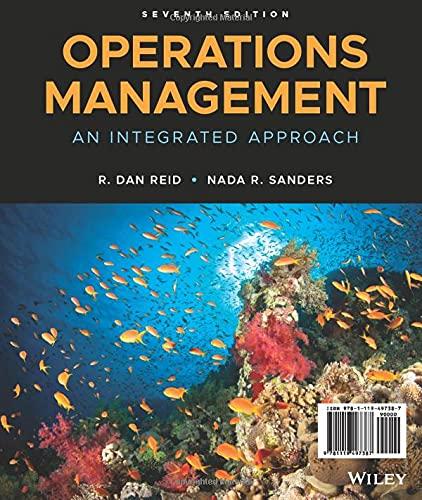Question
Assignment Scenario: After presenting the 2018 budget , the Federal Government allocated funds and requested to Environment and Climate Change Canada ECCC to guarantee that
Assignment Scenario:
After presenting the 2018 budget, the Federal Government allocated funds and requested to Environment and Climate Change Canada ECCC to guarantee that the Species at Risk Act is enforced. The minister of environment does not have a system that manages the Recovery Strategies and Action Plans for the species at risk in Canada. Today the documents are manually created and published.
ECCC has hired you to execute a project; elicit and document requirements; perform system analysis and design; and develop test plan and test cases.
Project scope
Recovery of Endangered, Threatened and Extirpated Species (Sections 37 to 55) of SARA.
In a nutshell, Environment and Climate Change Canada ECCC must follow 4 major steps when it comes to Species at Risk:
- A Committee of Status of Endangered Wildlife in Canada (COSEWIC) assess the level of risk of species that are believed being at risk
- Species considered at risk are listed to the Schedule 1 as defined by the law
- Recovery strategies and action plan documents have to be created for the listed species and published to the Public Registry (This is the scope of your project)
- Species and their habitats must be protected based on the recovery strategies
Regarding the Sections 37 to 55, some considerations of the scope of your project include:
- ECCC needs a document management system which Recovery strategies and action plans can be created, tracked and published to the Public registry
- Competent Ministers are the different Government of Canada departments that are responsible for a species. They are stakeholders and users of the system. These 3 are as follows:
- Environment and Climate Change Canada ECCC: Responsible for all terrestrial species
- Department of Fisheries and Oceans DFO: Responsible for all aquatic species
- Parks Canada: Responsible for species located within any National Park
- Provincial governments, indigenous groups and private land owners where species are located are also contributors of the documents
- A recovery strategy and an action plan are technical documents and the document management system tracks:
- The documents lifecycle: From creation to publishing final version to the public registry
- Information to support document creation, such as: Contact lists, land information where species are located, species information and threats (covered during step 1 of the process along our course
Deliverables of the Modules 2 and 3
Project plan, including the sections:
- Project description
- Project scope (context diagram)
- Draft of the Process model (current and future states)
- Draft of the requirements plan
- Stakeholder Management plan (RACI matrix)
- WBS
- Gantt Chart
I need help in drafting a Process Model for the current and future state. The diagrams covered in this course so far are context diagram, functional flow diagram, cross-functional diagram, and flowchart diagram. Attached is the context diagram I completed depicting the project scope for reference. Your help would be greatly appreciated!

Step by Step Solution
There are 3 Steps involved in it
Step: 1

Get Instant Access to Expert-Tailored Solutions
See step-by-step solutions with expert insights and AI powered tools for academic success
Step: 2

Step: 3

Ace Your Homework with AI
Get the answers you need in no time with our AI-driven, step-by-step assistance
Get Started


